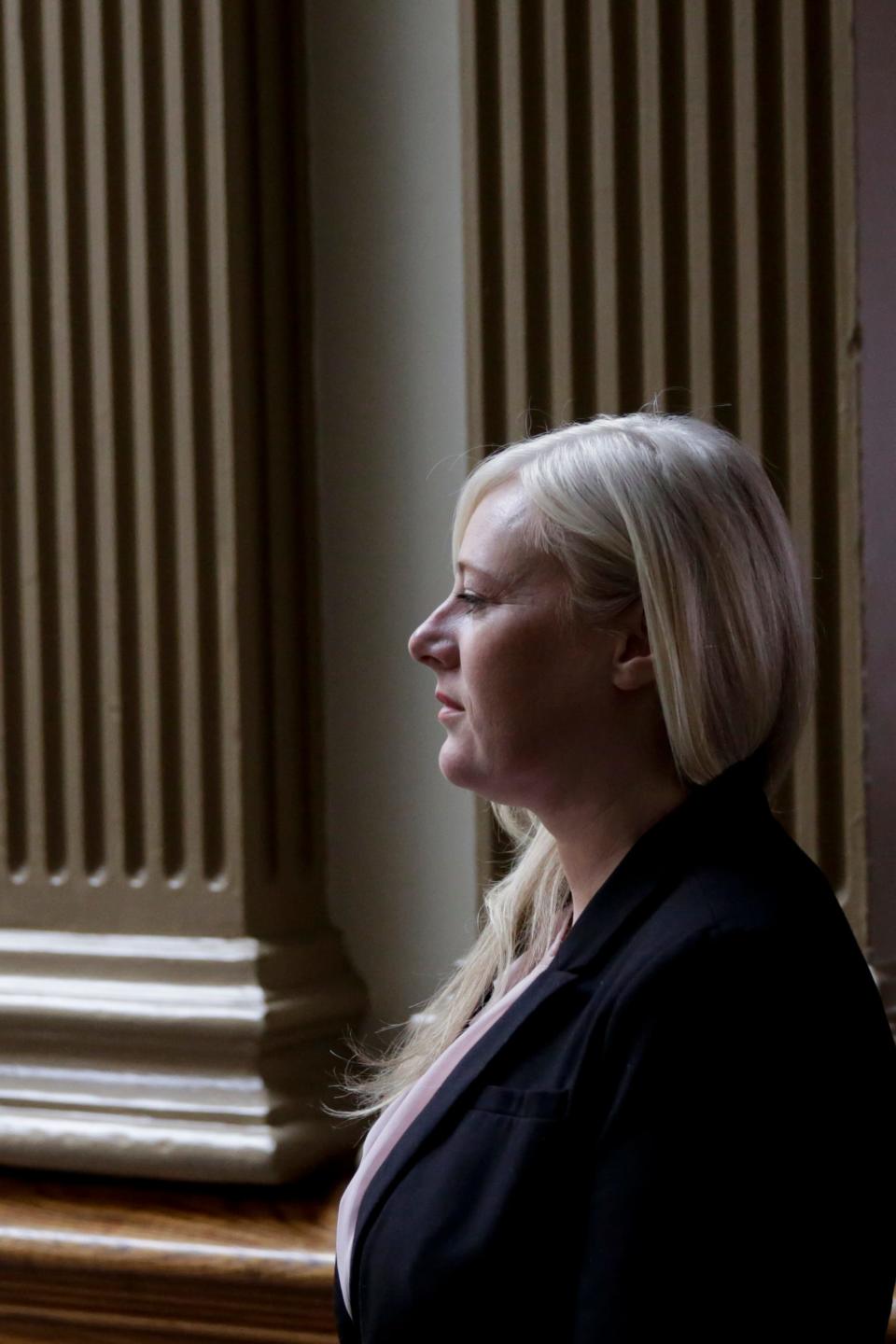Prosecutors say Michael Barnett violated gag order by working with Hulu producers
LAFAYETTE, Ind. — Michael Barnett faces trial next month on charges he neglected his adopted daughter, Natalia Grace — a Ukrainian orphan with severe dwarfism — but next week, Barnett faces a hearing on whether he violated the court's gag order in the case.
Prosecutors on Wednesday filed a notice to Tippecanoe Superior 2 accusing Barnett of violating the court's second gag order published Nov. 14, 2019. Prosecutors alleged the violation occurred when Barnett negotiated the sale of his media rights with representatives from Hulu, which is producing a limited series on Michael and Kristine Barnett's experience with the adoption of Natalia.
The state cites the gag order, noting "that the parties 'shall not disclose or cause to be disclosed any negative, adverse, or derogatory extrajudicial comments pertaining to, or make any comment vouching for or discrediting the character or credibility' of either Defendant, Co-Defendant, or Natalia Barnett."
Michael Barnett's attorney responds
The prosecutor's filing cites an online article that specifically states that Michael Barnett was represented in the negotiations by his attorney, Terrance Kinnard.
Kinnard filed a rebuttal Thursday and motion to strike the state's notice.
"The entirety of the State's inappropriate notice is a mere recitation of the language of an order of this Court, followed by citation to an online article the State has copied from the internet," Kinnard wrote in his motion to strike.
The two sides will make their arguments Wednesday when Barnett has his final pretrial hearing before his scheduled Sept. 12 trial.
More Natalia Barnett case:Adoptive father files motion to dismiss charges he abandoned Ukrainian orphan Natalia Grace
Kristine Barnett's case
Kristine Barnett, Michael's ex-wife and co-defendant, was in court in May on allegations she might have violated the gag order with her social media posts. Tippecanoe Superior 2 Judge Steve Meyer admonished Kristine Barnett to abide by the gag order. Her trial is scheduled for Oct. 24.
The Barnetts each face four counts of neglect of a dependent in what has turned out to be a three-year saga of legal twists and turns, one that has garnered international media attention.

The Barnetts had faced as many as eight counts of neglect, but four of those counts were determined by Meyer in August 2020 to be beyond the statute of limitations, so the charges were dismissed. The Indiana Court of Appeals upheld Meyer's ruling, and the Indiana Supreme Court refused to take the case for review.
Latest on Kristine Barnett:Adoptive mother in Lafayette child neglect case ordered to strictly follow gag order
The adoption and re-aging of Natalia Barnett
The Barnetts adopted Natalia in the spring of 2010 just before she turned 7, according to her Ukrainian birth records that indicate she was born in September 2003, according to court documents.
The Barnetts have claimed that they suspected Natalia was an adult from the first day when they gave her a bath and noticed she had pubic hair, according to what both Michael and Kristine Barnett have said to media outlets before the gag order. They also said Natalia had menstrual cycles.
They believed she was mentally ill because she made threats to kill the Barnetts and their three biological sons, the ex-couple said during pre-gag-order interviews.

In June 2012, the Barnetts petitioned for a Marion County court to alter Natalia's Ukrainian birth records, changing her birth year from 2003 to 1989. The court held hearings without giving Natalia the benefit of being represented by counsel, and it changed her birthyear, making her 22 — almost 23 — instead of 8 going on 9, according to court documents.
After re-aging Natalia, the Barnetts set up federal assistance for her, then later moved her into a Lafayette apartment, according to court documents. The family then left the United States and moved to Canada so the Barnett's oldest son, a prodigy, could begin college as a 15-year-old.
More on Michael & Kristine Barnett:Prosecutors face uphill challenge to continue case against Barnetts
The re-aging of Natalia created a legal shield for the Barnetts because Meyer cannot change the Marion County court's re-aging order. So in the eyes of the law, Natalia was born in 1989.
Prosecutors have said in court that they tracked down Natalia's birth mother in Ukraine and were prepared to bring her to Indiana to testify. But the law prevents Meyer from changing the Marion County order, and the Indiana Court of Appeals upheld his ruling on the matter.
This means that prosecutors cannot try the Barnetts for neglect of a dependent based on Natalia's age.
But since Natalia has severe dwarfism, prosecutors are pursuing the four remaining counts of neglect against the Barnetts based on Natalia's disabilities.
Michael and Kristine Barnett each face four counts of neglect of a dependent.
Reach Ron Wilkins at rwilkins@jconline.com. Follow on Twitter: @RonWilkins2.
This article originally appeared on Lafayette Journal & Courier: Michael Barnett, Hulu talks allegedly broke gag order in adoption case

